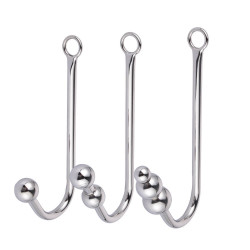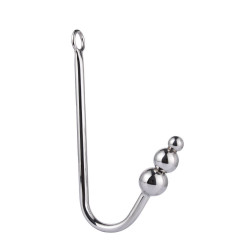
Cuckold
The boyfriend or spouse of someone who engages in sexual activity with others is known as a cuckold. A cuckold is a man who enjoys his partner having sex with other people in a contemporary fetish context. A typical abbreviation for the term cuckold is cuck.
Historically, a married man with an unfaithful wife was considered a cuckold.
Today, though, the phrase refers to any male in a committed partnership who finds pleasure in his spouse having sex with other people. Cuckolds can identify as any sexual orientation. Cuckolds can have sex with anyone, regardless of gender or sexual orientation. The masculine equivalent of cuckquean is Cuckold. A related phrase, "cuckcake," describes the lady with whom the spouse is having sex.
Where does the word Cuckold come from?
The name "fetish" comes from the cuckoo, a bird that deposits its eggs in other birds' nests. The other birds, who have no biological kinship with the cuckoo, then unintentionally raise the cuckoo's young.
The word "cuckold" originally referred to a man who his unfaithful wife had tricked. Nonetheless, the majority of cuckolds nowadays voluntarily participate in their partner's non-monogamy. They might plan their partner's dates or observe them having sex with other people.
Why are people into cuckolding?
Cuckolding frequently entails mental humiliation, which contributes to its allure. The Cuckold who is excluded from their partner's intercourse may experience frustration and embarrassment. It might not be very comfortable to know that someone else makes your lover happy. Because they believe their partner needs someone else to provide them with sexual pleasure, cuckolds may feel emasculated. Additionally, they might be envious of the individual having sex with their spouse. For those who like this fetish, experiencing these unpleasant emotions might be pleasurable, but they may be harmful to others. In reaction to cuckolding, some cuckolds can experience compersion or a feeling of pleasure that their partner is enjoying themselves. Giving up their spot in the bedroom to someone else may make submissive guys feel fantastic.
The cuckolding obsession also involves competition. According to several studies, men are more attracted to their wives and girlfriends after having sex with another man because it gives the sperm a chance to compete.
Although they are all non-monogamy, cuckolding is not the same as swinging or threesomes. This is due to the fact that the Cuckold does not engage in sexual activity. During their sexual experiences, they do not touch their partner, though they may see it.
How common is cuckolding?
For many people, being a cuckold is an intriguing fetish. It might be really typical. 52% of heterosexual men and 66% of gay and bisexual men in a sample of 4,175 participants surveyed by Dr. Justin Lehmiller for his book "Tell Me What You Want" reported having fantasies about cuckolding. Additionally, 42% of lesbians and 26% of heterosexual women reported having this fantasy at least once. Cuckolds may depend on the sensation of cuckolding for sexual fulfilment, and it can play a significant role in a person's sexual identity. It can be highly stimulating and satisfying to discuss their partner's extramarital affairs or to invite others into the bedroom as part of their regular sexual routine.
Cuckold fetishism can coexist with other BDSM interests, including verbal humiliation, denial, voyeurism, and feminine dominance, or it can be a more worshipful situation in which the cuck gets pleasure from watching others make his spouse happy.
What are the risks of cuckolding?
Everyone can enjoy a cuckold fetish as long as they all consent to this arrangement and play safely. You should be aware that there is a higher chance of acquiring and spreading sexually transmitted infections (STIs) in any non-monogamous relationship arrangement. Regular STI testing and the use of safer sex barriers (gloves, dams, and condoms) can reduce these risks.
As with any relationship, there is some emotional risk with this type of relationship as well. People who feel used for their lover's pleasure or who are bitter about having sex with others are something to talk about with your partner and watch out for. Nobody should feel pressured to accept their partner's non-monogamy, and cuckolding should be something that enhances the sex life of those who choose it. Couples in voluntary, non-monogamous relationships can overcome these obstacles with the support of open communication.
As a component of their sexual identities, many cuckolds accept their sexual attraction. They look for partners who are aware of cuckolding, like having sex with others and are willing to play along with the idea.
A masochistic cuckold's partner might claim, for instance, that their other sexual partners are more attractive or make better lovers. They might claim to want to have sex with other lovers in order to get the Cuckold. For a cuckold, having a spouse who is prepared to humiliate them verbally and sexually and who enjoys it themselves can be pretty alluring. To increase the emotional threat, cuckolds could also look for the most attractive lovers for their partners.
However, some people may also feel embarrassed about having a prohibited sexual interest. A therapist can assist cuckolds in overcoming any bad feelings that may arise from their sexual interest and in accepting the things that they enjoy.
It's critical to determine whether cuckolding is something you and your partner are passionate about and agree on before engaging in it. Negotiating boundaries and the reasons you want could be the first step if that's the case. From there, you may look for a third participant in your local kink scene, which is typically accessible via social media or Facebook groups.











































